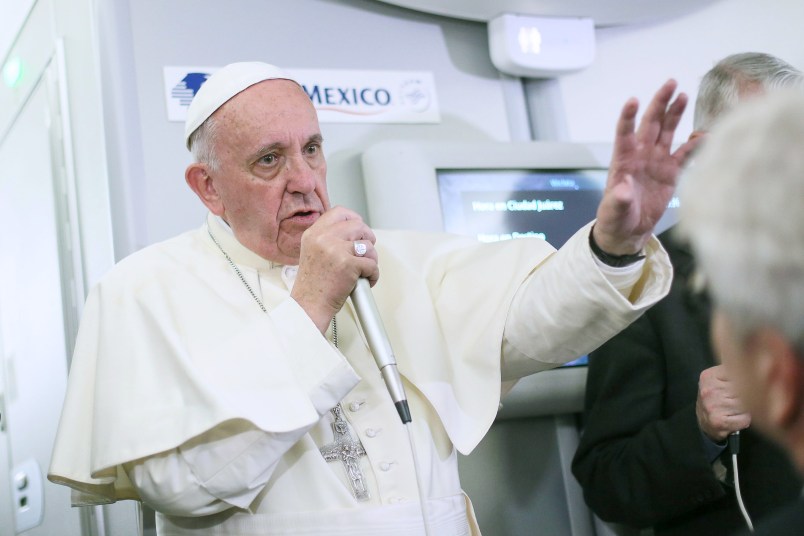VATICAN CITY (AP) — Pope Francis repeated his appeal for people to build bridges of understanding, not walls as he marked a feast day of a Sudanese immigrant amid a global uproar over the Trump administration’s attempts to impose a travel ban on seven mostly Muslim countries.
The pope didn’t refer to President Donald Trump in his comments. But at the end of his audience, he noted that Wednesday marked both the church’s day of reflection for young victims of human trafficking and coincidentally the feast day of St. Josephine Bakhita.
She was a 19th-century Sudanese slave who, after migrating to Europe, became a nun. Sudan is one of the seven countries on the U.S. travel ban list.
“In the social and civil context as well, I appeal not to create walls but to build bridges,” he said. “To not respond to evil with evil. To defeat evil with good, the offense with forgiveness. A Christian would never say ‘you will pay for that.’ Never.
“That is not a Christian gesture. An offense you overcome with forgiveness. To live in peace with everyone.”
Francis made the reference during his weekly Wednesday catechism lesson, dedicated to the general Christian precepts of hope and forgiveness in forging peace.
Francis has frequently invoked the “bridge not walls” appeal in urging countries to welcome migrants, including when he returned from a visit last year to the U.S.-Mexico border. On that occasion, he was asked about Donald Trump’s campaign pledge to build a border wall and said anyone who wants to build a wall is “not Christian.”
The Vatican has in recent weeks come out strongly and directly to criticize the Trump immigration policy, with a senior official saying the Vatican was indeed concerned and the Vatican newspaper, L’Osservatore Romano, saying the recourse to walls and travel bans was against U.S. economic interests.
In his remarks Wednesday, Francis also appealed for prayers for members of Myanmar’s Muslim Rohingya ethnic minority, who face official and social discrimination in Buddhist-majority Myanmar, also known as Burma.
“These are good people, peaceful people,” Francis said. “They’re not Christians, but they’re good, our brothers and sisters. And they have been suffering for years. They’ve been tortured and killed, simply because they are continuing their traditions, their Muslim faith. Let us pray for them,” he said.
Most of the estimated 1 million Rohingya do not have citizenship and are regarded as illegal immigrants from Bangladesh, even when their families have lived in Myanmar for generations. Communal violence in 2012 forced many to flee their homes, and more than 100,000 still live in squalid refugee camps.
Copyright 2017 The Associated Press. All rights reserved. This material may not be published, broadcast, rewritten or redistributed.







It’s OK … Stevie is working on it ! …